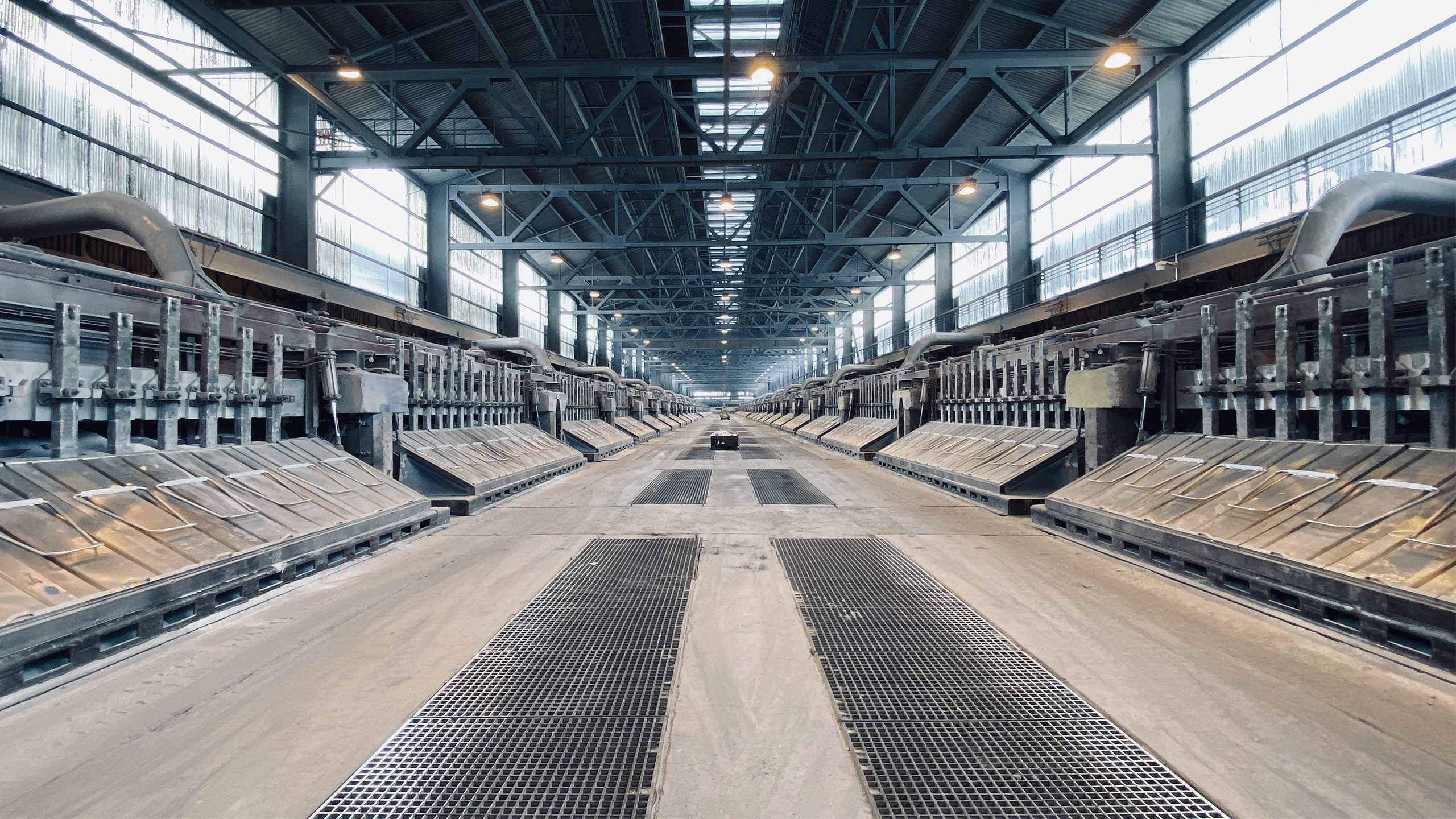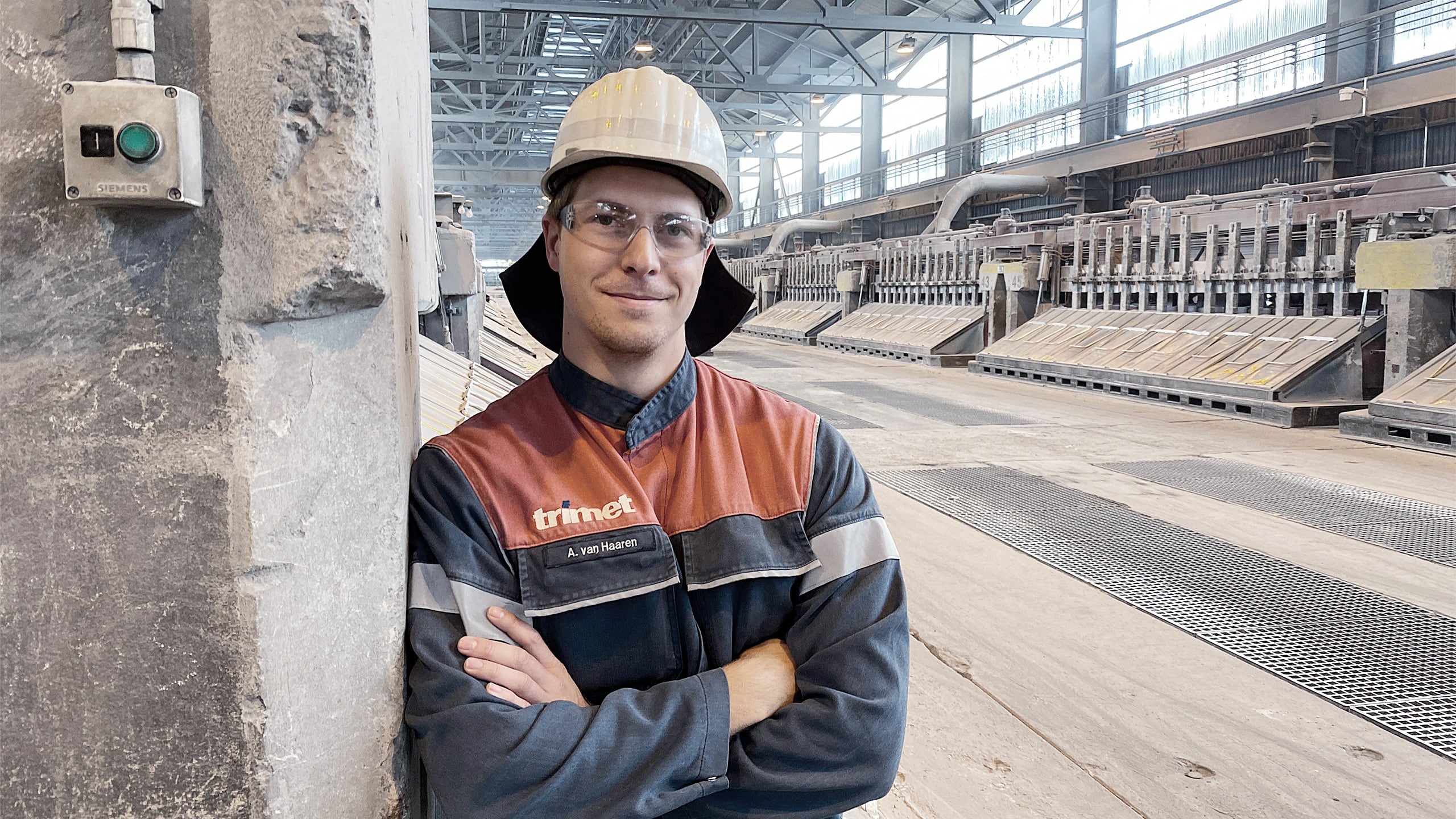Fittingly, it's a project involving power and heat that will pave the way for his first job after his apprenticeship in 2019. "The initial spark that enabled me to start working here at TRIMET was a concept study. This was to investigate how the heat generated in the aluminum production process can be used sensibly." Not an easy start - after all, the subject matter is quite complex. It had to be investigated where which heat is generated, what temperature it actually has, and how it can be transported from the point of generation to possible consumers. And all this had to be done without upsetting the already difficult process of aluminum production. In the furnaces, temperatures of almost 1,000 °C and currents of more than 170,000 amperes are used to split oxygen from aluminum oxide and thus extract aluminum. And that's not all: TRIMET has also been pursuing the idea of a "virtual battery" for some time. In short, this is intended to adapt production to fluctuating amounts of electricity from renewable sources. This is no simple undertaking, because the regulation of the power supply is of great importance. If even small deviations occur, this leads to irreparable damage to the furnaces - up to and including total failure. Therefore, it is important to compensate for deviations. TRIMET controls this by means of controllable heat exchangers. And this gave rise to the idea of making unneeded heat available elsewhere. The goal of this project, for which van Haaren was brought in at the time: To make district heating available to people in the north of Essen and in Bottrop. Or as the young engineer calls it: "CO2-free heat for the region.
From his involvement in the concept study to his current work as a process engineer, he really enjoys his work at TRIMET. Not only are the tasks challenging and varied, but it is above all the colleagues who make it for him. "You can always do a super job, but if no one promotes you, then it just gets difficult. But I just feel comfortable in this environment here." He also applied elsewhere after graduation, but ended up back at the "hut" he already knew from his part-time job. "It already has appeal here."
Van Haaren himself says about himself that he is still a bit too fast in parts. "I'm already a doer type. But sometimes it might also be better if I had thought a little more thoroughly before I got started," he admits openly. What definitely gets him going is that TRIMET is pioneering the developments he's working on. "It's pretty cool to be leading the way with such a new idea. The pressure that can come with it is taken off me quite well here. I can always ask my questions. Everyone here is really into the project." His company is already its own little world, van Haaren continues. "I also still have to learn a lot to better understand the many details in the process," he explains. The basics are catchy, he says. But how everything now "melds" together - electrochemical components, transitions of materials, and the energy and heat balances - in the furnaces is quite complex, he says. So lifelong learning is probably the order of the day here? "Definitely!", but the great thing is, he is supported in this. At the TRIMET Academy, young engineers like Mr. van Haaren learn not only technical tools, but also all the tricks of the trade that make up a project engineer and a manager.
His name has a Dutch influence - according to genealogical research, an ancestor came from Nijmegen. However, that is already far in the past. The 28-year-old feels like a "child of the Ruhr region. Born in Bottrop, he still lives in the independent city in the Ruhr region. "Away I was here only for a six-month internship in New Zealand, and once again for about nine months during my studies in Bavaria." He also "totally liked" it in Bavaria, says van Haaren - but nothing beats home. "Family and friends are here. And that's why I came back here." For him, his loved ones are "clearly" what makes up "home". "As much as I love climbing mountains, for example; without family and friends, it somehow feels wrong everywhere." And it's not like you have to sacrifice foresight here in the region, either. Van Haaren, at any rate, has discovered it for himself to "climb" former slagheaps by bike. "That's really cool. It gives you a little bit of a feeling of standing somewhere above it and being able to see for miles."
The interview was conducted by Cathrin Hesseler for Initiativkreis Ruhr GmbH.

